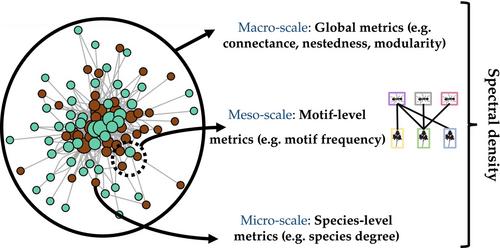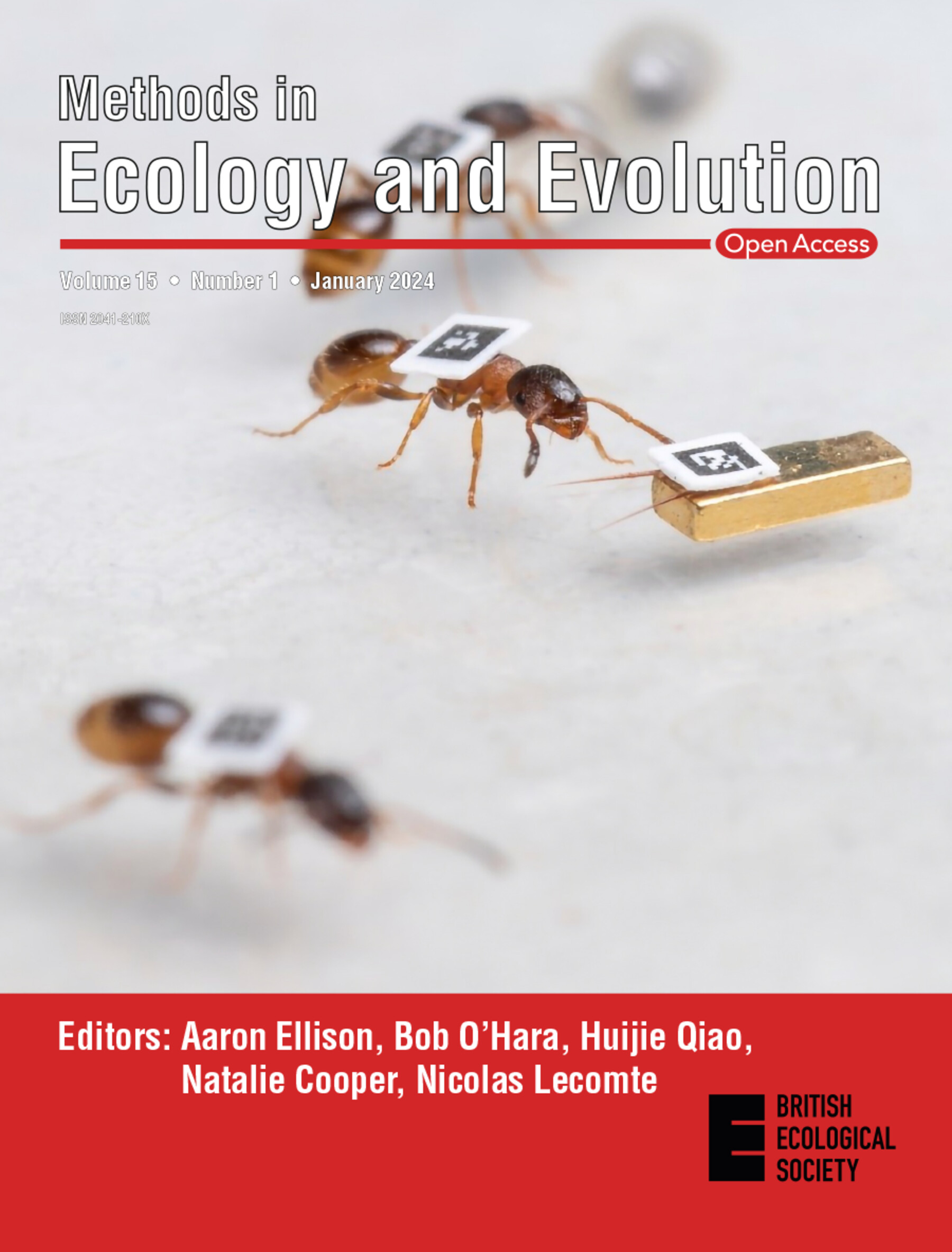Telling mutualistic and antagonistic ecological networks apart by learning their multiscale structure
IF 6.3
2区 环境科学与生态学
Q1 ECOLOGY
引用次数: 0
Abstract

通过学习生态网络的多尺度结构来区分互利和拮抗生态网络
生态网络代表了一个群落中谁与谁之间的相互作用,描述和理解生态网络结构的形成过程对生态学、进化生物学和自然保护有很多意义。一个备受争议的问题是,在拮抗型(如食草动物)和互惠型(如授粉)相互作用类型之间,双向生态网络的结构是否不同以及如何不同。在这里,我们利用网络结构的多尺度特征、机器学习工具以及一个大型的经验和模拟双向网络数据库来解决这个问题。以往的研究侧重于全局结构指标,如嵌套度和模块化,得出的结论是仅从结构上无法区分拮抗网络和互惠网络,与此相反,我们发现结合中尺度的结构表征和监督机器学习可以区分它们。在拮抗型网络中,连接密集的主题词比例过高,而在互助型网络中,具有非对称特化的主题词比例过高。这些结构特性可用来预测相互作用的类型,可信度相对较高。除了这种经典的互利/拮抗二分法之外,我们还发现了与特定生态(如授粉、寄生)相关的显著结构独特性。我们的研究结果澄清了拮抗网络和互利网络之间的结构差异,并建议对特定生态的结构独特性进行研究,以此作为超越粗略的拮抗/互利二分法描述相互作用特征的一种有前途的方法。
本文章由计算机程序翻译,如有差异,请以英文原文为准。
求助全文
约1分钟内获得全文
求助全文
来源期刊

Methods in Ecology and Evolution
ECOLOGY-
CiteScore
11.60
自引率
3.00%
发文量
236
审稿时长
4-8 weeks
期刊介绍:
A British Ecological Society journal, Methods in Ecology and Evolution (MEE) promotes the development of new methods in ecology and evolution, and facilitates their dissemination and uptake by the research community. MEE brings together papers from previously disparate sub-disciplines to provide a single forum for tracking methodological developments in all areas.
MEE publishes methodological papers in any area of ecology and evolution, including:
-Phylogenetic analysis
-Statistical methods
-Conservation & management
-Theoretical methods
-Practical methods, including lab and field
-This list is not exhaustive, and we welcome enquiries about possible submissions. Methods are defined in the widest terms and may be analytical, practical or conceptual.
A primary aim of the journal is to maximise the uptake of techniques by the community. We recognise that a major stumbling block in the uptake and application of new methods is the accessibility of methods. For example, users may need computer code, example applications or demonstrations of methods.
 求助内容:
求助内容: 应助结果提醒方式:
应助结果提醒方式:


